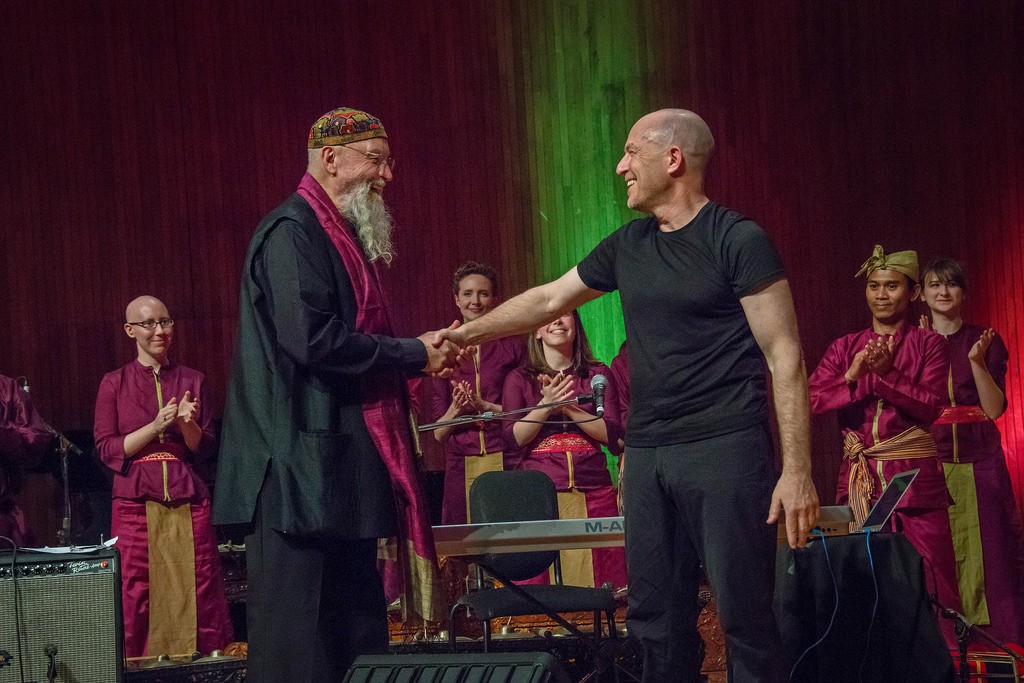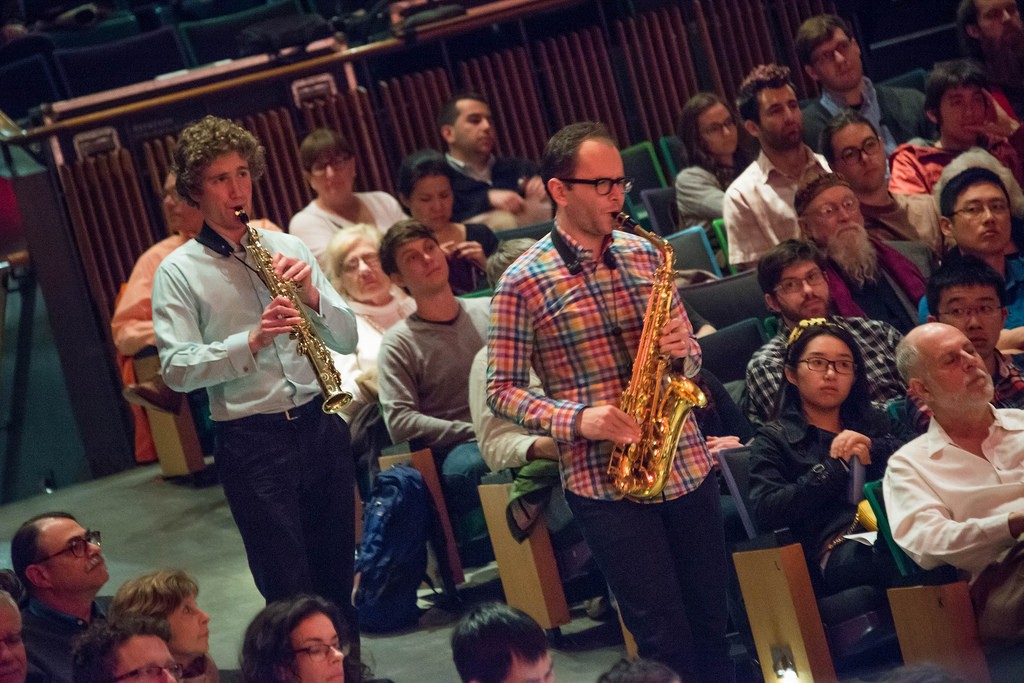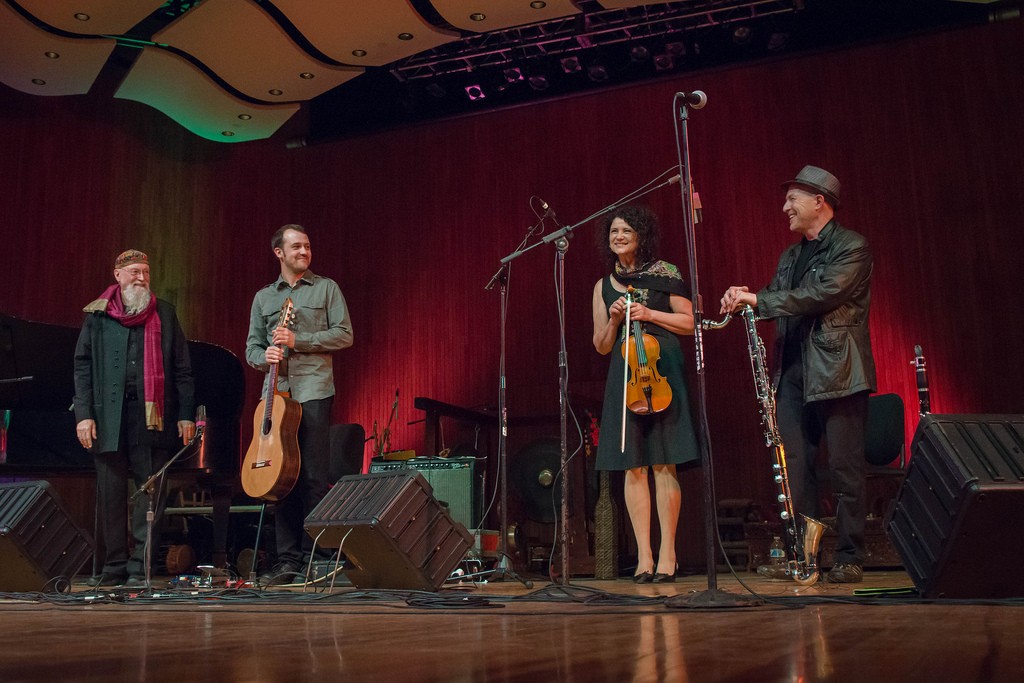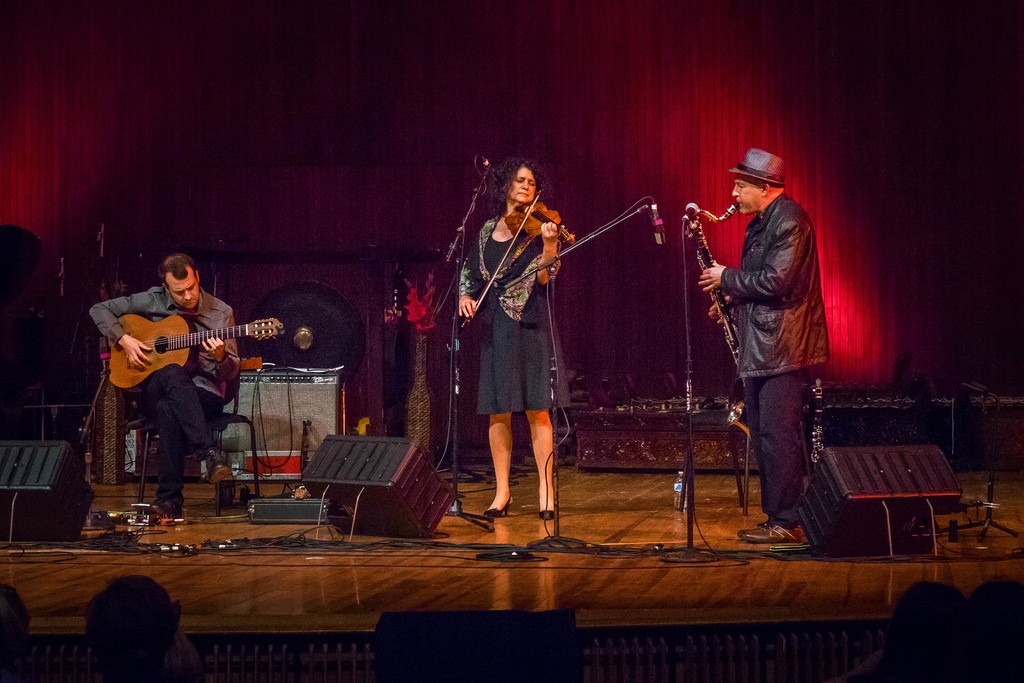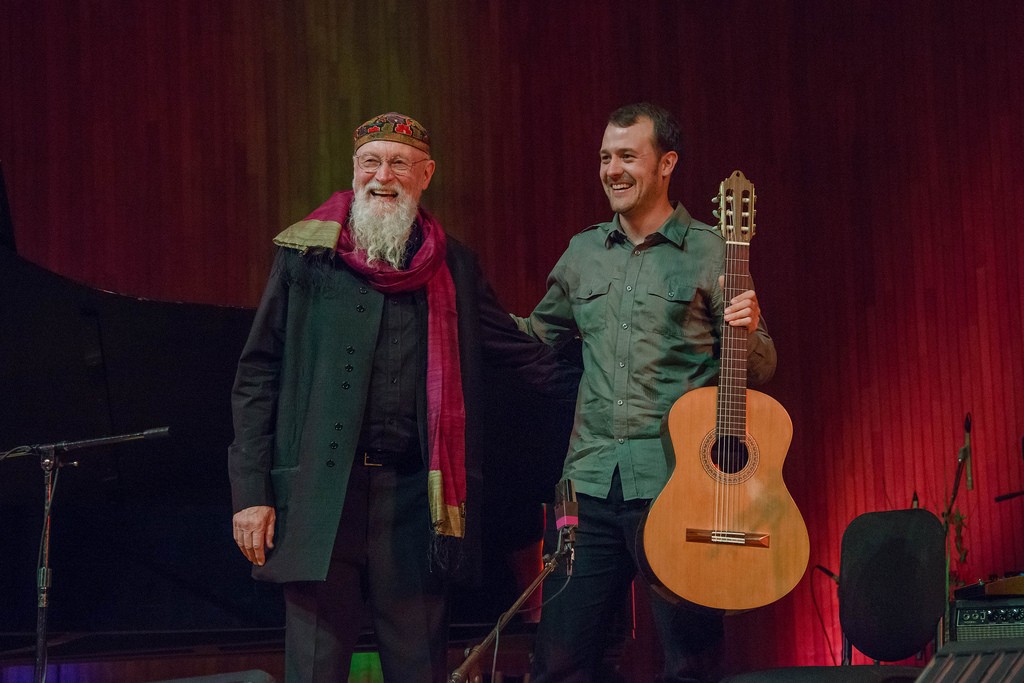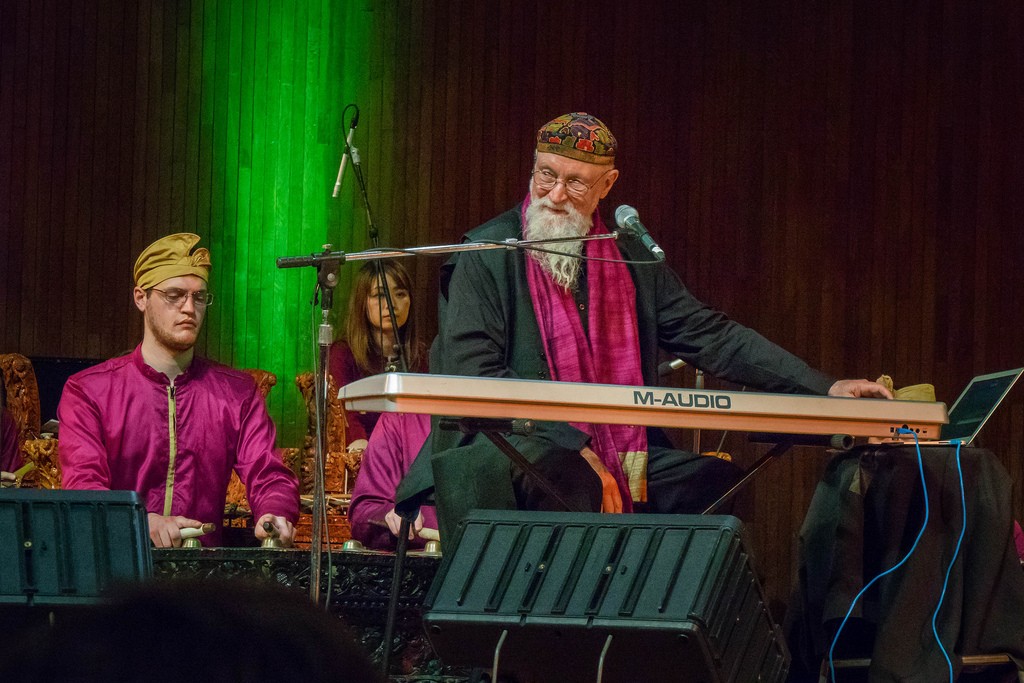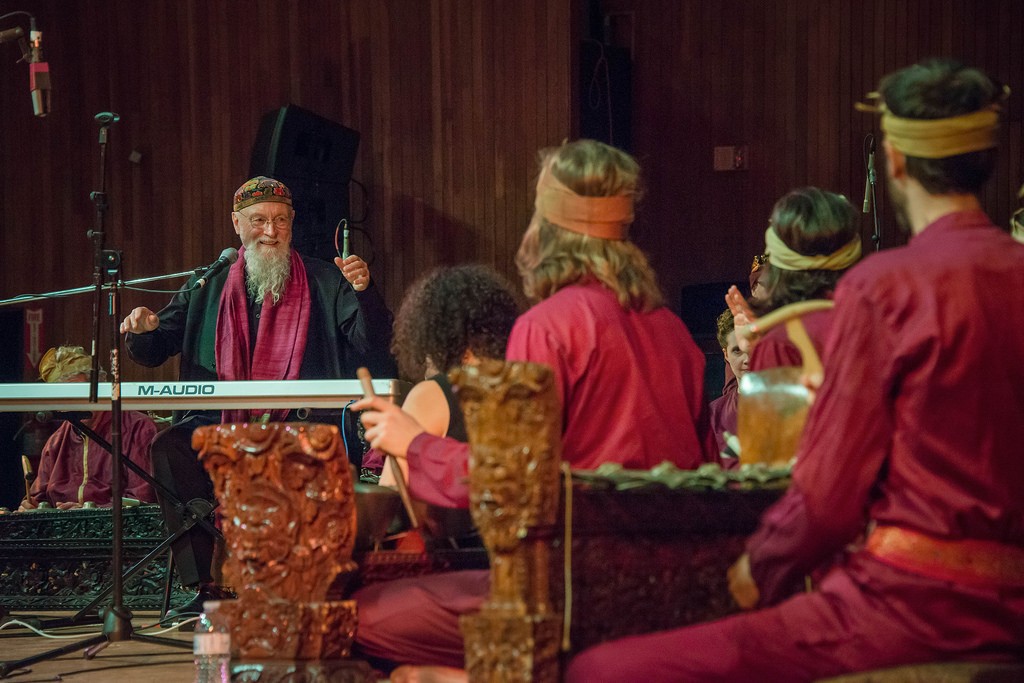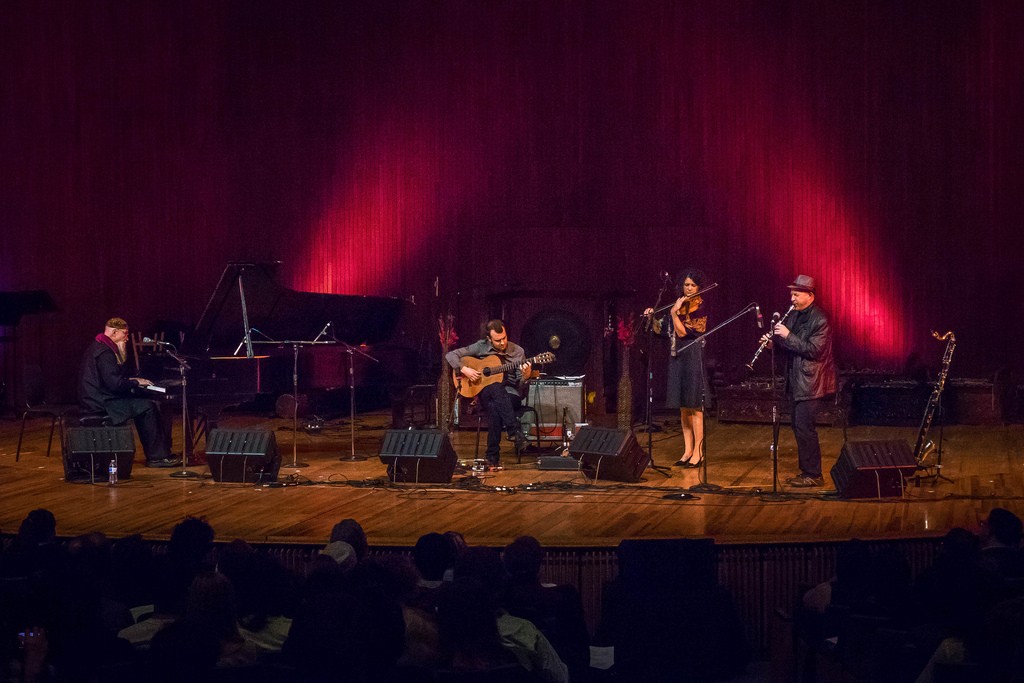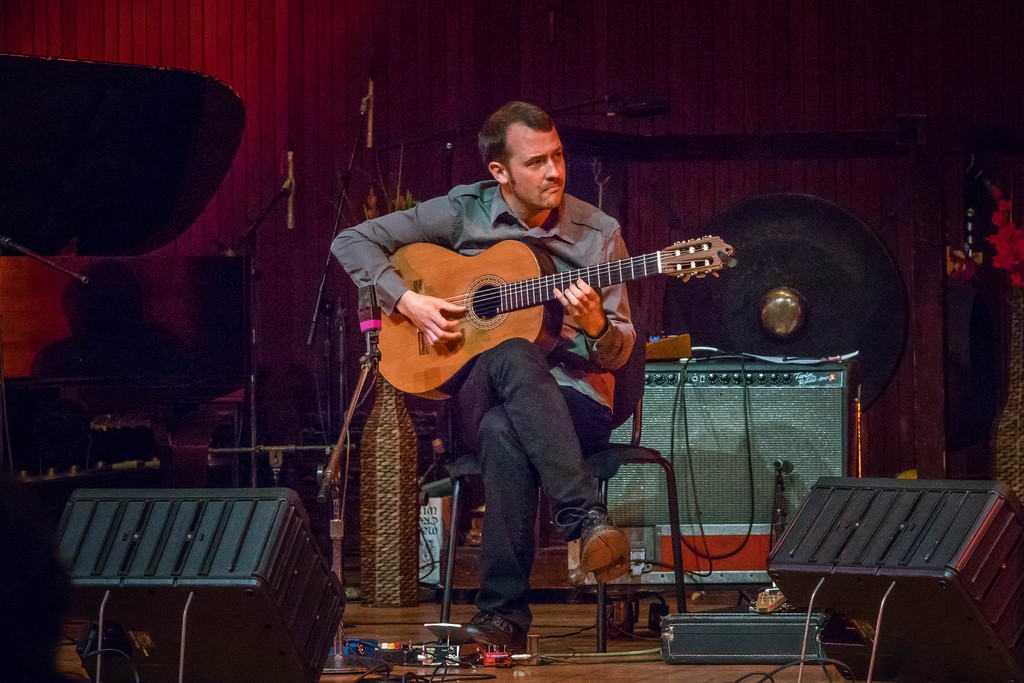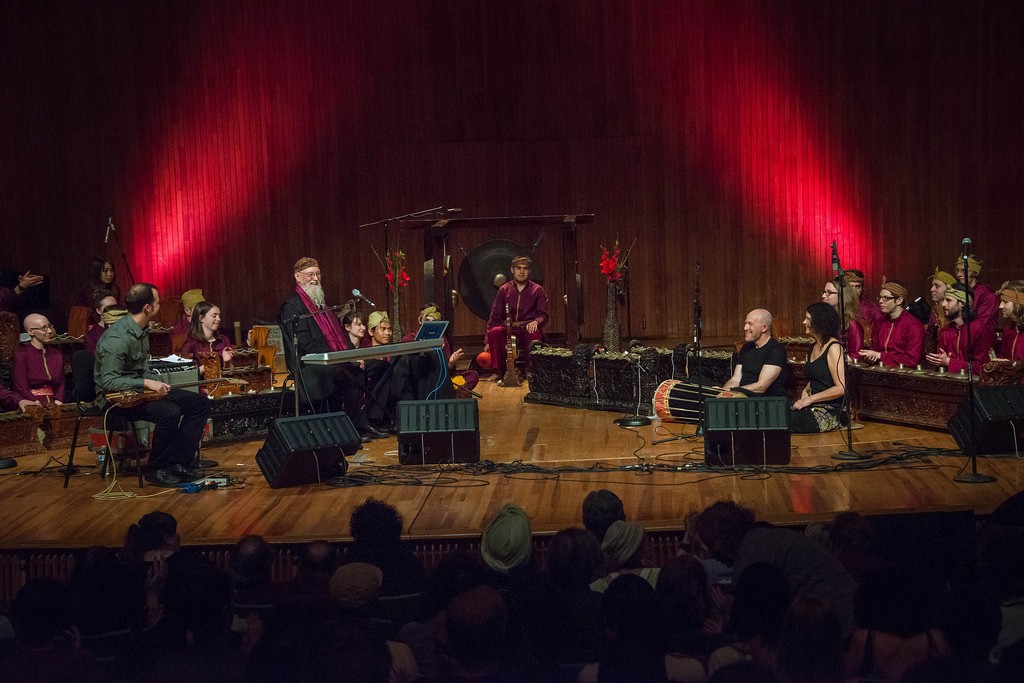“Prandit Pran Nath used to say, ‘You in the note, and the note in you,’ and that’s a good way to describe the state to be in when you’re performing. At least, it’s the state I want to be in as a performer – and even as a composer,” Terry Riley explained as he sipped green tea and emanated the joyful jovial nature of a bodhisattva.
Terry Riley’s 80th Birthday Concert – the reason for the legendary composer’s recent visit to MIT– delivered this experience of being inside the sound. The concert opened with a re-imagined version of Riley’s 1969 piece, “Poppy Nogood and the Phantom Band,” by Evan Ziporyn, which culminated in nearly a dozen roving saxophonists enveloping the audience in the range of sounds that can be wrested from that instrument, while a saxophone octet from University of Toronto, directed by Wallace Halladay, performed on stage. Pianist Sarah Cahill performed a veritable tribute concert-within-a-concert, playing seven compositions by and for Riley, including several world premieres by MIT composers.
Riley himself took the stage for an improvisation with EVIYAN, a group that features his son Gyan Riley, Iva Bittova and Evan Ziporyn. Together with Gamelan Galak Tika and EVIYAN, Riley closed the concert with the exuberant “White Space Conflict,” a composition that he wrote for the Gamelan in 2011, which fuses his characteristic cyclical structures and interlocking rhythms with Balinese gamelan.
Ziporyn described the birthday concert as a “gift exchange,” which involved “Terry sharing his own music with us as composer, performer and improviser; and our taking the opportunity to give something back – his own music reinterpreted, and a slew of new works written in his honor by colleagues, friends and family.”
This celebration concluded this year’s MIT Sounding series, and Ziporyn comments that Riley’s music is a fitting finale: “I think Terry’s music sums up a lot of the aesthetic of the series. It’s very open and reaches across genres, yet it is directed to the future.”
A pioneer of musical minimalism and electronic music, Riley is known for his multi-layered polymetric tonalities and eastern-inspired improvisations that incorporate Hindustani music into the Western classical tradition. Riley credits the Indian master Prandit Pran Nath with teaching him about the microtonal inflections of the ragas, and cites La Monte Young as his other major musical influence, noting there are too many others to mention everyone individually.
Riley’s expansive outlook and sound make his work appealing to diverse artists. Pete Townshend saluted him famously in The Who’s Baba O’Riley, and Kronos Quartet solicited Riley to compose Sun Rings for them in 2001 using NASA recordings of space sounds, among numerous other collaborations. In July 2015, Riley will compose new work for Doug Aitken’s living exhibition at the Barbican Centre, as part of Station to Station: A 30 Day Happening.
Riley, who will turn 80 on June 24th, has influenced generations of musicians and performers — since the San Francisco Tape Music Center days of the early 1960s to his tenure at Mills College in the 1970s to the present, with a slate of global projects and performances on the horizon. Riley says the best instruction he can give music students comes from a personal relationship rather than compositional exercises:
“It is a dilemma for me as a teacher because I don’t basically think composition can be taught — from my own experiences and how I got started with it. I mean, you can develop skills, but I think what you really learn, whether it’s composition or anything else, it’s just by association with people you really like. You like what they do, and you learn from their lifestyle and their approach to how they feel about their work. So, I think the best thing you can do, in relationship to your students, is just your own work and spending some time with them, letting them ask you things.”
In addition to associating with people you like, Riley also emphasizes the importance of making work you like (which is harder than it sounds, particularly given the contemporary preoccupation with “likes,” “followers,” and audience reception): “Well, if you please yourself, everything is taken care of. That’s the acid test. You know, do you really like what you’re doing? And if I don’t, it never leaves my studio.”

